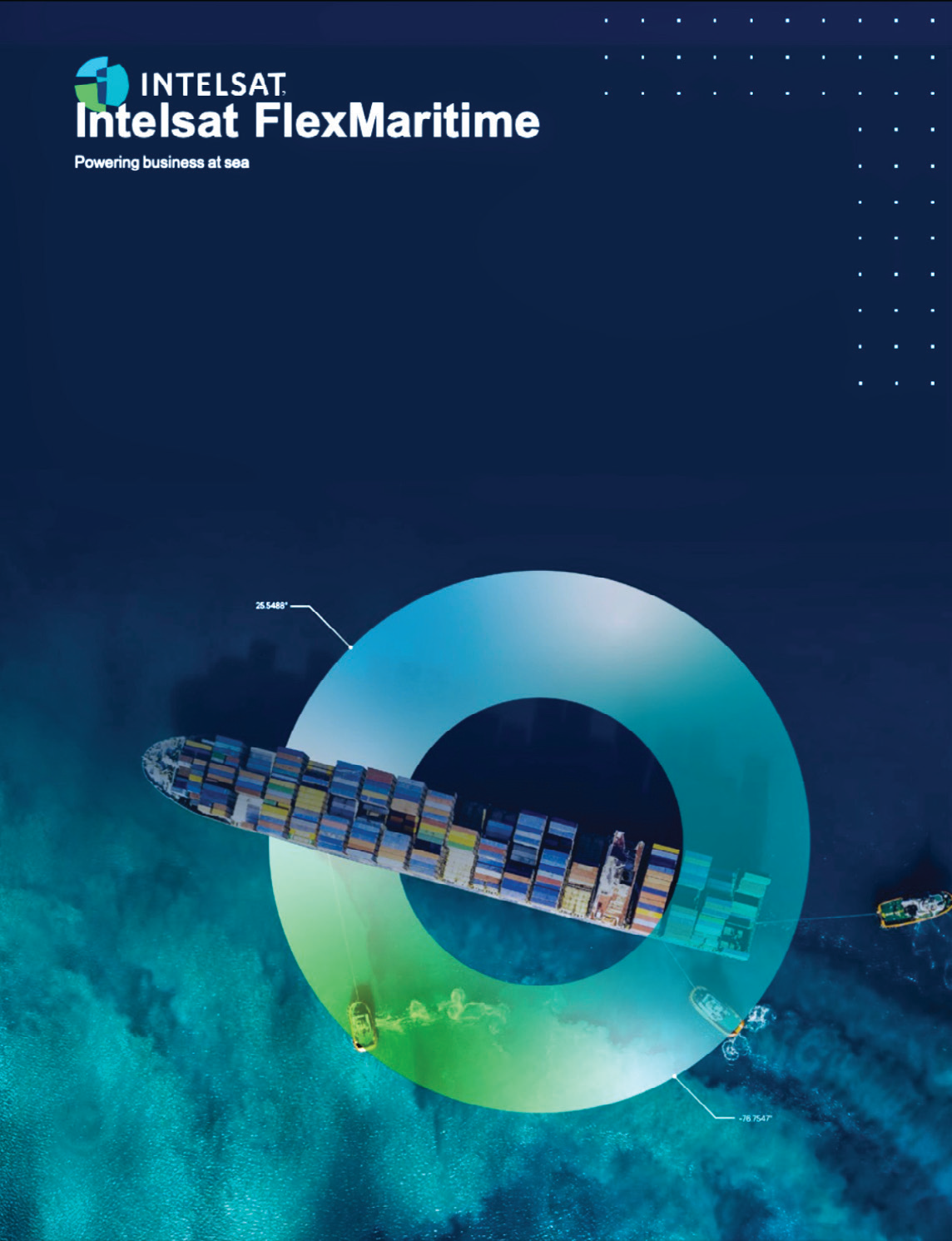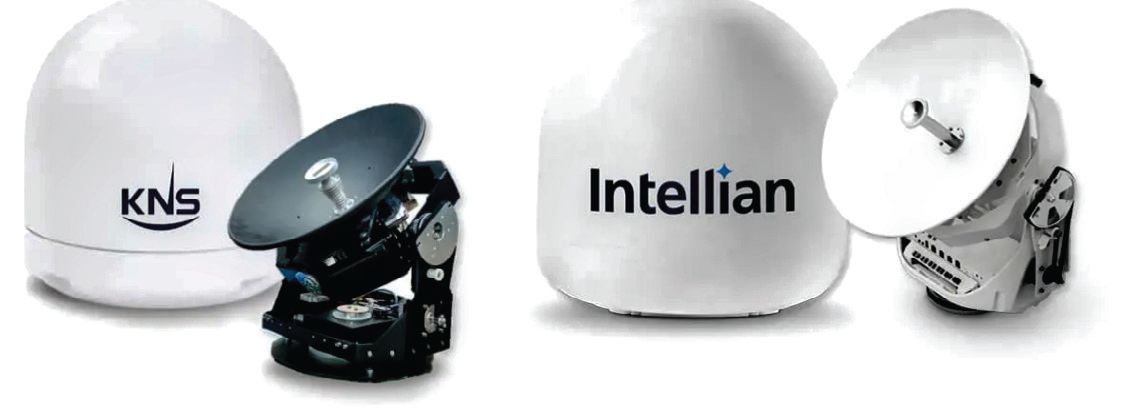If the COVID-19 pandemic has taught us anything, it is the importance of technology to keep us connected. In our hyper-connected world, there are few places that are off the grid, with no access to cellular. But ask a commercial fisherman, who can spend months at a time at sea, and they’ll tell you that connectivity can be hard to come by on open waters yet remaining connected is critical.

A lack of connectivity can limit a fishing vessels’ operations in a number of ways, from hindering navigation, maintenance and reporting systems, to decreased seafarer satisfaction as crew is disconnected from their onshore lives for long periods of time.
The benefits of satellite connectivity are clear: Connected vessels are able to track their onshore deliveries in real time, conduct remote diagnostics, assess the latest weather data to calculate the best route, optimize fuel consumption, and improve product traceability. Connected vessels also improve crew member health, safety, and happiness by enabling them to remain connected with friends, family, and social applications, while ensuring the application of safety regulatory measures and a reliable connection for emergency communications. In an industry known for above average turnover rates — with 24% of fishers leaving a job after one year and 59% in four years or less, broadband connectivity could be used to support crew welfare and increase employee retention.
The Adoption of Vessel Monitoring Systems For Safety and Compliance
A ubiquitous, scalable connectivity solution at sea is increasingly becoming a necessity as more countries require Vessel Monitoring Systems (VMS). These systems require “always on” connectivity to provide fishery authorities accurate reporting of the position, date, time and course of vessels. The demands on the fishing industry are also clear: The Food and Agriculture Organization (FAO) estimates that of the approximately 179 million tons of fish caught globally each year, 20% is unreported and unregulated (IUU) fishing, representing an annual cost of $23 billion. VMS are increasingly being required both for safety and to combat this illegal fishing, yet today only a small percentage of vessels have such systems enabled.
In addition to compliance, connectivity empowers vessel owners and crew with accurate information of ports, weather, markets and more. Seamless access to this information lets fishers know exactly where the catch is, helping crew optimize their voyage, and cut down time at sea. In this highly price-sensitive industry, access to real-time pricing of fish stocks in nearby ports allows crew to prioritize a catch by predicting nearby market demand.
To stay competitive in an increasingly digitized and global industry, fishing vessel owners and operators are looking to incorporate dependable connectivity solutions. According to Harbor Research, there are more than 84,000 large fishing vessels (24 meters or larger) globally. However, today only the largest vessels in this segment have adopted Very Small Aperture Terminals (VSAT) communications as these solutions have traditionally been expensive and rather large — typically one meter in size and often weighing hundreds of kilograms. For smaller to mid-size boats, even down to a size of 12 meters, finding a satellite communications system that provides the right balance of affordable equipment, service performance and coverage has been a major barrier for fishing operators.
Intelsat: The Captains of Connectivity
As the foundational architects of satellite technology, Intelsat operates the world’s largest integrated satellite and terrestrial network, with a global, multi-layered footprint of high throughput (HTS) and wide-beam geostationary satellites.
Intelsat FlexMaritime, a global, secure, fully managed connectivity solution, removes the complexity of dealing with bandwidth availability, configuration and management of network infrastructure. It delivers speed and throughput where and when users need it. This award-winning, high-performance design provides consistent, “always on” service anywhere in the world with proven network uptime.
Since launching its FlexMaritime service in 2017, Intelsat has become the top provider of broadband connectivity for maritime passengers and crew and powers the largest share of maritime VSATs. Intelsat delivers high-throughput capacity that helps fishing companies enhance crew welfare and ship operations while supporting growth opportunities and new, data-hungry business applications. With more than 8,600 ships on the FlexMaritime network, all seamlessly swapping beams in the unforgiving environment of the world’s oceans, Intelsat has proven its ability to streamline internet access worldwide.
Satellite Made Simple: Intelsat FlexMaritime Connects Ships of all Sizes
Intelsat and its partners are on a mission to seamlessly connect fishers and fishing vessels worldwide. Enhancing connectivity at sea is not just about the network, it’s about lowering the barrier of entry for fishing vessels of all sizes and making procurement of services simple and affordable. With FlexMaritime, both installation and service models are simplified.
FlexMaritime introduced support of ultra-compact antennas from KNS and Intellian, measuring just 45 centimeters and weighing less than 27 kilograms. These antennas are small enough to carry aboard by hand and easy to install, allowing fishing vessels to avoid the lengthy and expensive installation of larger antennas. Users will experience unmatched performance with ubiquitous coverage and the high-throughput capabilities of Intelsat’s global network, even along the most congested maritime routes.

Delivered to end-customers exclusively through Intelsat’s network of diverse and highly experienced Solutions Partners, FlexMaritime is offered in simple, month-to-month or annual service agreements. Wholesale, end-terminal packages come with a choice of gigabyte volume-based plans minus any long-term usage commitments. This flexibility allows for a lower barrier of entry and plans that meet all requirements.
Ideal for smaller fishing boats, the new 45cm antenna solution provides a perfect balance of cost, performance and coverage. Additionally, FlexMaritime has the widest variety of terminal options with services offered on more than 30 qualified antennas of various sizes, including 1m, 60cm, and 37cm terminals.
Additional information is available at this direct Intelsat infosite...
www.intelsat.com

Shane Rossbacker
Mr. Rossbacher joined Intelsat in 2018, bringing more than 25 years of maritime satellite communications experience to his role. He is responsible for Intelsat’s Maritime portfolio, including the award-winning Flex Maritime platform which uses Intelsat EpicNG satellites to power high-throughput broadband communications services to all maritime market segments including merchant, cruise, passenger, offshore, fishing, superyacht and leisure. Prior to joining Intelsat, he held leadership roles at Inmarsat, Globe Wireless and Rydex. As Vice President of Business Development for Inmarsat Maritime, Mr. Rossbacher led a team responsible for all maritime product and service offerings and was then promoted to Vice President, Portfolio Management, where he had wider responsibility for Inmarsat’s maritime, enterprise and government business units.


